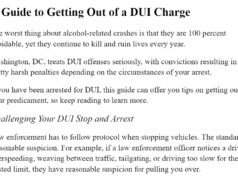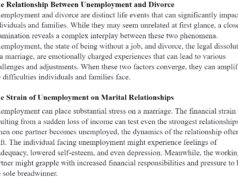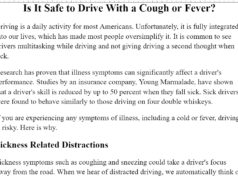SPONSORED CONTENT
Good Reasons For Suing a Medical Professional
A doctor’s office in New York is the last place you would expect to suffer an injury. Unfortunately, errors can occur during a visit to the doctor or a hospital, and they can become the beginning of your pain and suffering.
Since most medical professionals intend to do well, suing them when things go wrong may not feel like the best thing to do, but there are some good reasons you may need to, as highlighted in this guide.
To Cover the Costs of Treatment
While you may not like suing your doctor, piling medical bills after an injury resulting from their negligence may force you to. Also, the doctor will most likely not compensate you out-of-pocket. Instead, their insurer will cover their liability.
However, it doesn’t mean that they will not feel the impact of the claims, as it can result in costlier premiums.
“It doesn’t always have to get to the point where you sue. In some cases, their insurer can opt for a settlement that doesn’t involve suing, but it is important to involve a lawyer in such a situation to ensure you do not get a raw deal,” says New York personal injury lawyer John H. Fisher of The New York Injury & Malpractice Law Firm, P.C.
Making the Healthcare Industry Safer
The standards of care have improved significantly in the healthcare sector in the past few years and claims against negligent medical professionals and hospitals have played a critical role.
When healthcare providers know that their actions can result in lawsuits, they tend to be more careful to avoid situations that could give rise to lawsuits. Health providers use lost lawsuits as a lesson and use it to create safer approaches to treatment. So, by suing for medical malpractice, you will be helping prevent harm to future patients.
To Hold Medical Professionals Accountable
Most medical professionals diligently ensure they get the best outcomes for their patients. When errors result in injuries in such cases, you probably wouldn’t want to get anything from them other than compensation for harm suffered.
However, there are some cases where the injuries could result from gross negligence or intentional tort, in which case you would feel the need to have the medical professionals held accountable for their actions by suing them. In some cases, holding them accountable could include having them criminally charged, in which case you may have to leave the case to the prosecution.
Common Types of Clams Against Medical Professionals
Several situations can give rise to a medical malpractice claim against a medical professional or institution. These situations include:
- Misdiagnosis, Delayed Diagnosis And Failure To Diagnose: These situations mean a condition fails to be identified in time, resulting in deterioration and more complicated treatment. In some cases, such as cancer, it could mean a significantly decreased chance of survival. A misdiagnosis could also mean getting the wrong treatment, resulting in harm rather than the intended good.
- Surgical Errors: Surgical errors occur during surgery and include leaving surgical equipment inside a patient, operating on the wrong body part, operating on the wrong patient, conducting unnecessary operations, etc.
- Medication Errors: These are errors that occur during drug prescription and dispensing. They include issuing the wrong dosage, prescription mix-ups and can involve the treating doctor, the dispensing nurse or pharmacists.
- Other Errors: Anesthesia errors, pregnancy care, birth injuries, and failure to monitor are also common causes of injury and can give grounds for filing a medical malpractice lawsuit.
Medical malpractice lawsuits can be quite complex, and it’s almost impossible to succeed with your claim without a lawyer who specializes in medical malpractice.


 Sign up for the Blue Virginia breaking news newsletter
Sign up for the Blue Virginia breaking news newsletter








![“Attorney General [Jason Miyares] is a coward who refuses to defend our state’s laws [against so-called ‘conversion therapy’] that demonstrably prevent suicide”; “Glenn Youngkin is simply despicable”](https://bluevirginia.us/wp-content/uploads/2025/07/youngkindespicable-100x75.jpg)